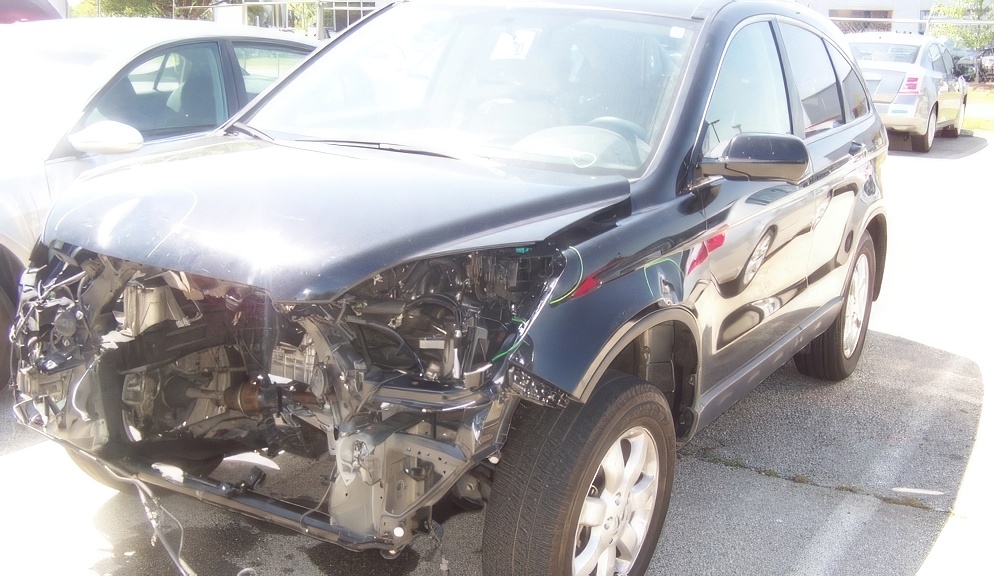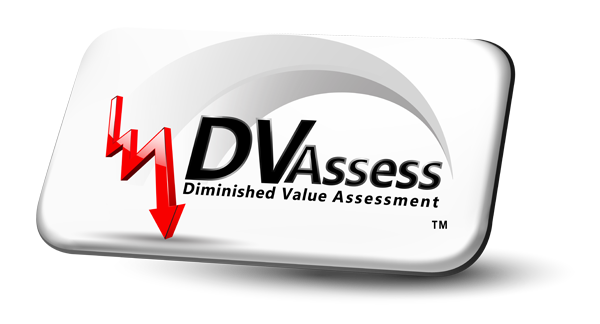Crafting a Compelling Diminished Value Claim: Harnessing Professional Insight

When an accident leaves your car repaired but its value reduced, a diminished value claim becomes a crucial recourse. This claim isn’t merely about seeking compensation; it’s about asserting the right to a vehicle’s true worth despite its history. However, the path to a successful claim is fraught with complexities that require more than just a basic understanding of the process. This article covers the following:
Professional appraisers and specialized attorneys emerge as vital allies in this journey. Their expertise transforms a potentially overwhelming process into a structured, persuasive claim. These professionals do more than assess damage; they quantify the intangible loss in value, crafting a compelling narrative for insurance companies.
Professional appraisers provide a critical service by delivering an accurate post-accident valuation of your vehicle. Their assessments are grounded in a deep understanding of automotive markets and repair processes. With their insight, the often-subjective concept of ‘diminished value’ is given a concrete figure, one that reflects real-world market conditions and the true impact of the damage sustained.
Meanwhile, attorneys specializing in diminished value claims navigate the legal labyrinth of insurance claims. They advocate on your behalf, leveraging their understanding of the law to ensure that insurance adjusters and courts recognize the full extent of your vehicle’s devaluation. With their guidance, what could be a dismissible claim transforms into a legitimate, actionable demand for fair compensation.
Enlisting Appraisal Experts for Accurate Valuations
The nuanced task of calculating a car’s post-accident value is not for the faint-hearted. Enter professional appraisers, whose role in the diminished value assessment process is akin to that of a detective uncovering a car’s hidden narrative. These professionals examine beyond surface repairs, scrutinizing the car’s history, make, model, and even the impact of the accident on its mechanical integrity. They understand that each dent and scratch can tell a story of devaluation, and they are adept at translating this story into the language of numbers that insurers can’t ignore.
Appraisers also stand as a bulwark against the often-minimalist approaches adopted by insurance companies. By employing industry-accepted methodologies and considering market trends, they ensure that every factor contributing to your vehicle’s diminished value is accounted for. Their reports serve as the bedrock of a claim, lending weight to your argument for a fair settlement.
Moreover, the value of a professional appraisal lies in its objectivity and precision. An appraiser’s independent status means their assessment is free from the biases that might color a valuation from an interested party, like a repair shop or an insurance company. This objectivity is crucial when presenting a claim to insurers or, if necessary, a judge.
The appraisal itself can also be a powerful negotiating tool. Armed with comprehensive documentation that details every aspect of the vehicle’s condition and its impact on market value, car owners find themselves in a stronger position to contest lowball offers from insurance adjusters. In this battle of figures and facts, a professional appraisal is your strongest weapon.
Legal Advocacy: The Attorney’s Role in Maximizing Your Claim
Attorneys specializing in diminished value claims offer a strategic advantage that is indispensable in complex negotiations. Their expertise becomes evident as they dissect the fine print of insurance policies, challenge undervalued estimates, and counteract the tactics insurers use to minimize payouts. Attorneys are the champions in the legal arena, ensuring that your claim is not only heard but also given the consideration it rightfully deserves.
The legal expertise provided by these attorneys is pivotal in cases where insurance companies are reluctant to acknowledge the full extent of a claim. They bring a wealth of experience in dealing with similar cases, providing them with the foresight to anticipate insurer pushback and the knowledge to counter it effectively. Moreover, their legal prowess allows them to navigate the subtleties of state laws which can significantly influence the outcome of a claim.
Finding the right attorney for your diminished value claim is about more than just legal representation; it’s about partnership and trust. An experienced attorney will guide you through the process, keeping you informed at every step and ensuring that your claim is positioned for the best possible outcome. They understand the stress and frustration that often accompany these claims and work diligently to alleviate these burdens, advocating tirelessly on your behalf.
Furthermore, a seasoned attorney can be instrumental in cases where litigation becomes necessary. Should an insurance company refuse to settle, or offer an amount far below what is fair, the attorney is prepared to take the battle to court. Their litigation experience is invaluable, transforming what could be a daunting prospect into a well-strategized course of action.
Choosing the Right Professional: Ensuring Your Team has the Expertise You Need
Selecting the right appraiser or attorney is a critical decision that can significantly affect the success of your diminished value claim.
The criteria for choosing these professionals should be stringent, focused on their experience and track record in the specific realm of diminished value claims.
For appraisers, look for certifications and memberships in reputable industry organizations, which often indicate a commitment to ongoing education and adherence to ethical standards. Check their history of working with insurance claims and ask for examples of settlements they have facilitated. A good appraiser should be able to explain their process clearly and be willing to defend their valuation if challenged by an insurer.
When it comes to attorneys, their experience in the field of auto insurance law is paramount. Seek out a legal expert who has a thorough understanding of the diminished value claim process and has successfully represented clients in similar situations. Their negotiation skills should be exemplary, and they should be prepared to litigate if necessary. Client testimonials and case histories can provide insight into their success rates and the quality of service they provide.
In addition to experience, the rapport you build with these professionals is essential. You want a team that communicates effectively, understands your specific situation, and demonstrates a genuine interest in achieving the best possible outcome for your claim. Their willingness to work with you, explain complex legal and financial concepts, and be accessible when you have questions or concerns is indicative of a professional who will go the extra mile for your cause.
By carefully selecting your appraiser and attorney, you ensure that your diminished value claim is in knowledgeable and capable hands. With the right team, you can confidently navigate the claims process, secure in the knowledge that your case is being handled with the utmost professionalism and expertise.
FAQs
Diminished value refers to the economic loss in a vehicle’s value resulting from an accident and subsequent repair. Even when repairs are executed to a high standard, the car’s history of damage can affect its market perception and resale value. This type of claim is based on the principle that a vehicle that has been in an accident is less valuable than one with no accident history, regardless of how well the repairs have been performed. It’s an important financial consideration for vehicle owners and buyers in the used car market.
Professional appraisers are instrumental in the diminished value claims process due to their specialized knowledge and expertise. They provide an unbiased and accurate valuation of the car’s worth post-accident, which is crucial for substantiating the claim. A professional appraisal acts as a cornerstone for negotiations with insurance companies, offering concrete data to back up the claim. Appraisers take into account various factors, including the extent of damage, quality of repairs, and the car’s make, model, and age, to arrive at a diminished value that accurately reflects the vehicle’s current market position.
Attorneys play a pivotal role in navigating the complexities of insurance and legal systems. They help in articulating the claim, dealing with the nuances of insurance policy language, and advocating for the client’s rightful compensation. An attorney’s involvement is crucial when a claim is contested, as they possess the negotiation skills and legal knowledge required to challenge insurance companies’ assessments. If the case goes to litigation, having an attorney with a background in diminished value claims can make a significant difference in the outcome.
Choosing the right appraiser is crucial for a successful diminished value claim. Look for professionals with certifications from recognized industry organizations, which signify their expertise and reliability. An experienced appraiser should be transparent about their process and willing to discuss how they determine the diminished value. It’s beneficial to select someone with a proven history of working with insurance claims, and who can provide detailed reports that are respected by insurers and, if necessary, can be defended in court.
When searching for an attorney, it’s essential to find someone with specific experience in handling diminished value claims. They should have a deep understanding of the insurance industry and be adept at interpreting policy details that pertain to such claims. A good attorney will have a strong record of negotiating with insurers and, if needed, litigating such claims successfully. Client testimonials and case results can offer insight into an attorney’s capability and success in securing fair settlements for their clients.
While you can file a claim independently, it’s not recommended due to the technical nature of the process. Without professional expertise, it may be challenging to accurately determine the diminished value or negotiate effectively with insurance companies. Professionals ensure that the claim is properly documented, accurately calculated, and that you are adequately represented, which can significantly affect the outcome of your claim.
The timeline for filing a diminished value claim varies by jurisdiction, but typically, there is a statute of limitations that can range from one to several years after the accident. It’s important to check the specific laws in your state. Acting promptly after the repairs are made is often advantageous as it allows for a more straightforward assessment of the vehicle’s condition post-repair and minimizes the complexities that time can introduce to the claim.
Filing a diminished value claim should not impact your insurance premiums, particularly if you were not at fault for the accident. Insurance premiums are based on risk assessment, and making a diminished value claim does not necessarily alter your risk profile. However, insurance companies have different policies, and factors like the frequency of claims might influence premiums. It is advisable to discuss the implications with your insurance provider or attorney before proceeding.
The amount of diminished value is determined through a careful analysis of several factors. These include the vehicle’s condition before the accident, the quality of the repairs, and the overall impact of the accident on the car’s value, which encompasses both the physical damage and the perceived reliability. Appraisers may use various methods, such as comparing the sale prices of similar vehicles with and without accident histories or applying standardized formulas adjusted for specific market conditions. This calculated value aims to quantify the tangible and intangible losses resulting from the accident.
If an insurance company’s settlement offer does not reflect the true diminished value of your vehicle, you do not have to accept it. With the support of a professional appraiser and attorney, you can contest the offer. They can help you build a strong case to negotiate for a more appropriate amount. If the insurance company is unyielding, your attorney can escalate the matter to litigation, where a court will assess the validity of your claim and determine the fair compensation.




